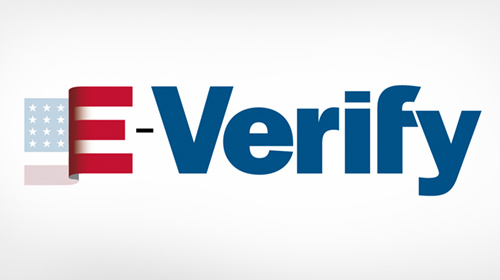E-Verify: Immigration Reform Cannot Come at the Expense of the Right to Privacy


The House Judiciary Subcommittee on Immigration and Border Security held a hearing yesterday on E-Verify, which would create a huge database of every person eligible to work in America. Many members of Congress from both parties think a mandatory E-Verify system — along with ongoing increases in spending at the border—is a silver bullet for immigration enforcement. Right now it’s a voluntary system, but mandatory E-Verify would obligate all employers to run new hires through the system to verify electronically their eligibility to work in this country. That might sound reasonable – but the problem is that the E-Verify system is seriously flawed.
In addition to putting the burden of immigration enforcement on employers—which is certainly not their job—E-Verify is not always accurate. The government has worked to correct many errors, but even if the database had an error rate of just one percent, that would equate to approximately 1.5 million mischaracterized Americans who would run into barriers when next seeking employment. To clear their names, these people would have to navigate the bureaucracy of the Social Security Administration to correct their profile in order to get work. In an economy that is still struggling, we don’t need to adopt new obstacles to employment.
If E-Verify is made mandatory through coming immigration reform, it could quickly create a de facto national ID system containing detailed data on everyone authorized to work in America. Your name, photo, drivers’ license information, social security number, phone number, email address, employer, industry, and country of birth could all be verified though a system accessible over the internet. A system that comprehensive could quickly replace traditional forms of identification, and expand its mission from merely restricting access to employment to restricting access to any other public or private service. The result could be that everyone’s information would have to be correct in E-Verify in order not just to find work, but possibly to vote or to buy a gun. If combined with other government databases, such as those on travel or communications, it would become a gold mine for inquisitive law enforcement or anyone seeking to spy on American citizens.
The ACLU has been banging the drum on this flawed system for years. While it is very important to deal with issues surrounding immigration in this country, reform must not result in a national ID system that creates unnecessary barriers to employment and violates our right to privacy.
The ACLU’s statement for the record can be found here.
Watch the ACLU’s Chris Calabrese discuss what’s wrong with E-Verify on Reason TV here.
Learn more about E-Verify and other civil liberty issues: Sign up for breaking news alerts, follow us on Twitter, and like us on Facebook.

